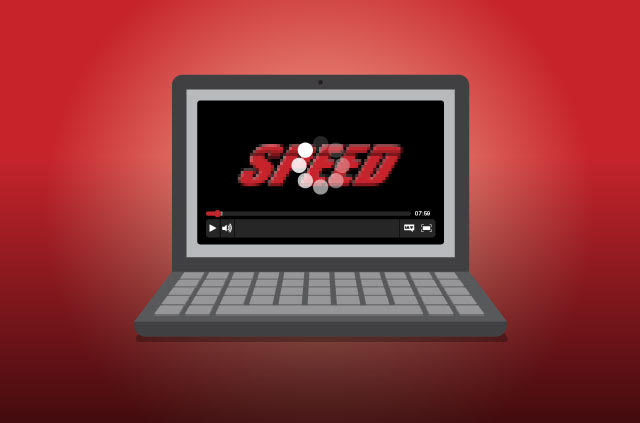A few weeks ago a savvy VPN user posted a thread on Reddit showing how Verizon was throttling their streaming speeds. By using a VPN to check their network through different speed test tools, they determined how their connection was being throttled up to 10 MBPS normally, but when they connected to a VPN, their speeds suddenly increased. Other users soon reported the same issue.
While throttling has, unfortunately, become a common practice for many ISPs, this was the first known case of intentional throttling without offering a reason.
Here’s how you can fight back.
What is throttling?
Essentially, throttling is when your ISP intentionally slows your internet connection. It typically occurs when someone has exceeded their ISP’s data plan, though sometimes (like in the case above) it can happen without reason.
With the rise of streaming sites like Netflix, Hulu, and YouTube, customers are using more data to stream, which in turn is causing ISPs to start capping their data limits.
Cable companies are notorious for charging high prices for small data plans. In Atlanta, for example, Comcast was exposed for charging customers an extra $30 to remove data caps, even though they were already paying for the service.
And don’t think that just because you have an unlimited data plan that you’re not vulnerable to data caps; many users, including a journalist from The Verge, reported throttling even though they’re paying for unlimited data.
Throttling is a bogus concept
ISPs claim that throttling is essential to improve network congestion—especially for high-traffic sites—but that’s far from the truth.
For starters, the amount of available data is far greater than the actual demand, thus negating the need for data caps. Cell phone data, in particular, has grown tremendously over the last few years.
Secondly, cable companies have admitted that these data caps are only about making money. By charging customers more for upgraded plans and data, ISPs can churn over more profit.
There’s only one problem: some ISPs throttle connections for no reason at all.
Verizon’s taking your account hostage
When the Verizon issue first came to light, the company issued a statement claiming how they were in no way throttling user data. After this was debunked, the company pivoted and issued a follow-up claiming they were simply running diagnostic tests. The statement was vague at best, and while they did admit to throttling connections, they didn’t really explain why.
With the impending net neutrality reversal, ISPs like Verizon have already started throttling your connections. The worst part is that it’s happening without you even realizing it.
Use a VPN to fight back
The easiest way to bypass data throttling is to use a VPN. Because a virtual private network disguises your IP, you’re able to browse the web without having to worry about data caps. In some cases—like the Verizon users who reported the throttling—your streaming speeds can actually increase.
Not sure if your network is being throttled? Try it yourself. Test your speeds while connected to a VPN and again without. You can do this fairly quickly by using Netflix’s speed test tool. If you notice a significant change in speeds, chances are your network’s being throttled.
If the net neutrality rules are rolled back, cases like the above are expected to increase. Don’t let lobbyists take over the internet. You can make your voice heard by donating to StopTheCap and by reaching out to your local government official.


Great Post.